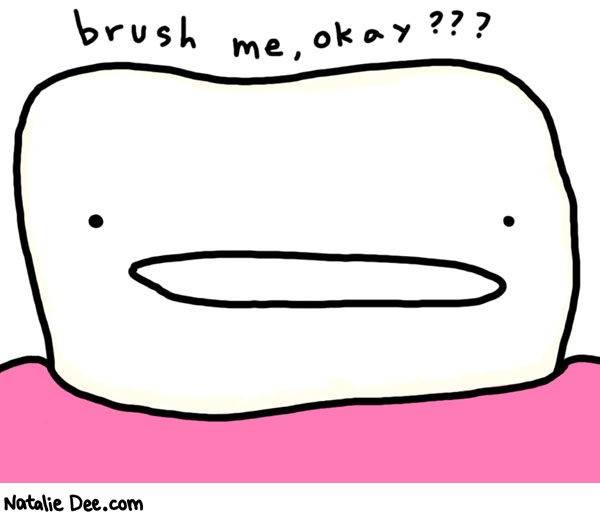 Data from over 11,000 adults in Scotland showed that close to 30% brush their teeth only once or less than once a day.
Data from over 11,000 adults in Scotland showed that close to 30% brush their teeth only once or less than once a day. Researchers, led by Professor Richard Watt from University College London, found that participants who reported less frequent toothbrushing had a 70% extra risk of heart disease compared to individuals who brushed their teeth twice a day; they also tested positive for inflammatory markers such as the C-reactive protein and fibrinogen.
In the last twenty years there has been increased interest in links between heart problems and gum disease. While it has been established that inflammation in the body (including mouth and gums) plays an important role in the build up of clogged arteries, this is the first study to investigate whether the number of times individuals brush their teeth has any bearing on the risk of developing heart disease, says the research.
The research team analysed data about lifestyle behaviours such as smoking, physical activity and oral health routines. Individuals were asked how often they visited the dentist (at least once every six months, every one to two years, or rarely/never) and how often they brushed their teeth (twice a day, once a day or less than once a day).
On a separate visit nurses collected information on medical history and family history of heart disease, blood pressure and blood samples from consenting adults. The samples enabled the researchers to determine levels of inflammation that were present in the body. The data gathered from the interviews were linked to hospital admissions and deaths in Scotland until December 2007.
Here’s more.
Bad breath and bleeding gums can also occur in people who routinely brush their teeth and gums.
Gingival bleeding and halitosis is often the first sign of poor oral hygiene that may eventually lead to further periodontal problems," said Dr Walter A. Bretz, of the New York University College of Dentistry and the mentor of the 2006 assessment of treatment responses to dental flossing in twins.
This group found that tongue and tooth brushing in combination with dental flossing significantly decreased gingival bleeding by 38 percent after a two-week oral hygiene program. Halitosis, or bad breath, was also reduced. In the group that did not floss as part of their daily routine, gingival bleeding sites increased by almost four percent.
So the final take home message is to not just brush and floss your teeth but to also brush your tongue at least twice a day to minimize your risk of cardiovascular disease.
Journal Reference:
de Oliveira C, Watt R, Hamer M. Toothbrushing, inflammation, and risk of cardiovascular disease: results from Scottish Health Survey. BMJ. 2010 May 27;340:c2451.
Biesbrock A, Corby PM, Bartizek R, Corby AL, Coelho M, Costa S, Bretz WA, Bretz WA. Assessment of treatment responses to dental flossing in twins. J Periodontol. 2006 Aug;77(8):1386-91.
See our earlier posts on


OMG!
ReplyDeleteI had to squeeze the tooth paste out of its tube this morning.
I need to buy more tubes to clean my teeth at least 3 times a day.
Thank you for your information!